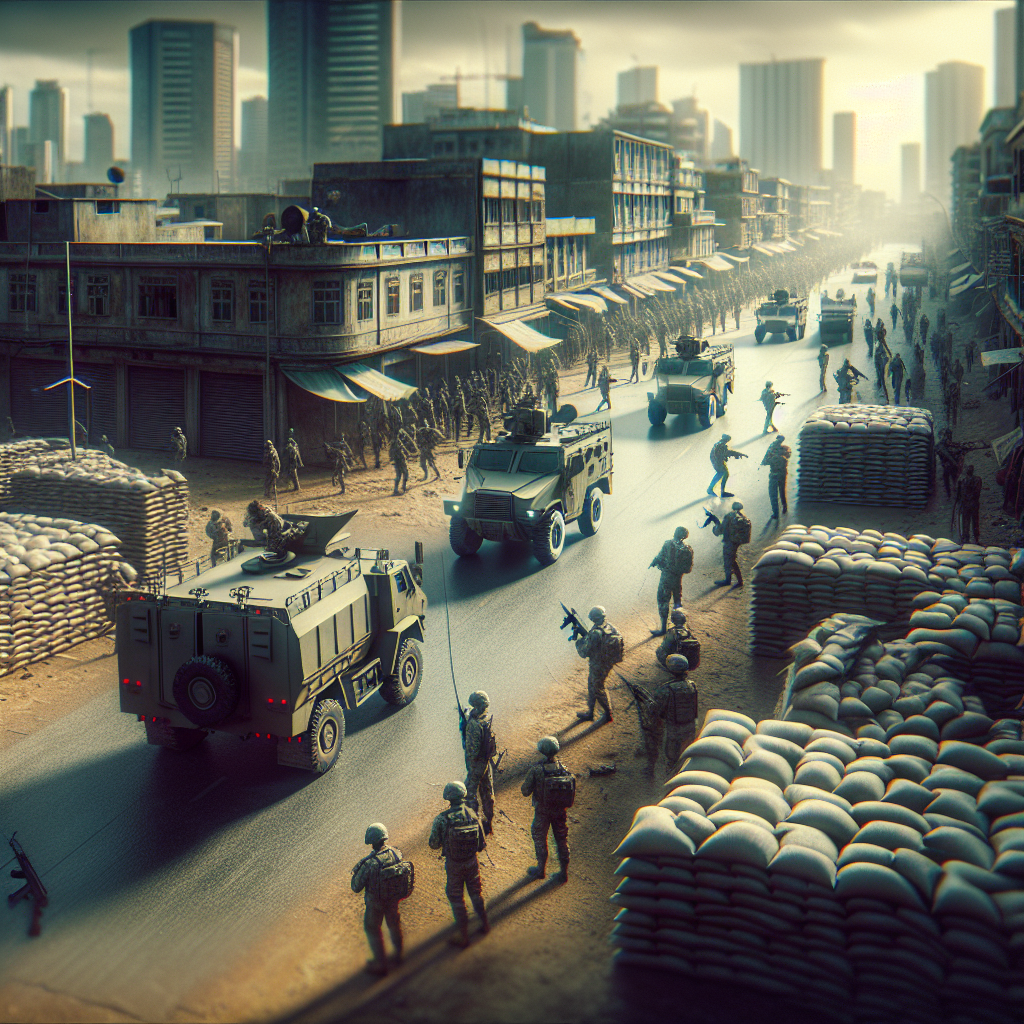Sudan Military Takes Control: What This Means for Peace and Stability in Khartoum
Introduction: A Turning Point in Sudan’s Fragile Landscape
Sudan, a nation long troubled by conflict, has seen a significant shift in power dynamics over the past 24 hours. The military has solidified its control in Khartoum, retaking vital government buildings and the symbolic Republican Palace from a powerful paramilitary group. This development marks a pivotal moment in Sudan's ongoing struggle for stability, with implications for both domestic governance and regional politics. With tensions running high and international stakeholders observing closely, understanding what’s at stake is critical.
In this article, we will explore the events that led to the military's strengthened grip on Khartoum, its broader impact on Sudan’s trajectory, and the questions that remain about the road to peace. This analysis dives deep into the current political landscape, historical contexts, and potential future scenarios.
The Complex Dynamics of Sudan’s Military Takeover
1. The Republican Palace: A Symbol of Power
The Republican Palace, a historic structure and seat of symbolism in Sudan, has long been a contested objective in the nation’s political power plays. Its recapture by the military follows months of skirmishes with the Rapid Support Forces (RSF), a paramilitary group infamous for its aggressive tactics. The palace's seizure wasn’t merely strategic—it was deeply symbolic, signaling to both Sudanese citizens and the international community that the military remains a dominant force.
This move also highlights the military's capability to coordinate large-scale operations against heavily armed opponents like the RSF. However, questions linger around civilian safety, as battles for these territories have often resulted in collateral damage, displacement, and heightened humanitarian crises.
2. Who Are the Key Players?
Sudan’s crisis has revolved around two primary factions:
- The Sudanese Armed Forces (SAF): Representing the state, the SAF seeks control over governance and restoration of law and order. Its leadership often portrays itself as a stabilizing force amid chaos.
- The Rapid Support Forces (RSF): An offshoot of the Janjaweed militias, the RSF challenges state authority while vying for power. Operated by Mohamed Hamdan Dagalo, or "Hemedti," the RSF brings considerable financial and military resources to the conflict.
This clash between military entities has left civilians caught in a power struggle, exacerbating the instability that has plagued Sudan since the ousting of former President Omar al-Bashir in 2019.
3. Civilian Perspective: Has Stability Truly Returned?
While the military has declared "full control" over Khartoum, conditions on the ground tell a more complex story. Airstrikes, road closures, and sporadic gunfire have disrupted normal life. Civilians often bear the brunt of these confrontations, facing displacement, health challenges, and restricted access to basic resources like food and water.
Moreover, the power vacuum left after the military's recapture of key buildings remains a significant concern. Without a functioning administrative structure, public services remain paralyzed. Many are skeptical that the SAF's dominance will lead to lasting peace rather than a temporary halt in hostilities.
The Broader Context: Historical and Regional Implications
1. A Legacy of Instability
Sudan's long history of military coups, civil wars, and economic turmoil has made stability elusive. Events dating back to the secession of South Sudan in 2011 have only compounded these challenges. The military's current moves echo the tactics used during previous regimes, raising fears among Sudanese citizens about the potential for authoritarianism in the guise of stability.
2. Regional Ramifications and International Response
The Horn of Africa, where Sudan is strategically located, is a region rife with geopolitical concerns. Neighboring nations such as Ethiopia and South Sudan are closely watching Sudan's developments, mainly because instability here often radiates across borders. Additionally, global powers like the United States, the European Union, and China have varying stakes in Sudan, from humanitarian efforts to economic investments.
What remains to be seen is how the international community responds. Will it impose sanctions on military leaders? Or will it engage diplomatically to mediate between the SAF and RSF, possibly pushing for inclusive governance?
Conclusion: Sudan’s Tough Road Ahead
The developments in Khartoum may symbolize the Sudanese army’s growing dominance, but they hold no guarantees for peace or prosperity in the broader sense. The nation faces several crossroads—restoring civilian government, addressing economic instability, and providing accountability for past human rights abuses. These challenges require long-term commitment and collaboration from both domestic actors and the international community.
The hope lies in a negotiated political settlement that prioritizes the interests of Sudanese civilians over competing elite agendas. However, achieving such a resolution will likely require tireless efforts, diplomatic ingenuity, and sustained global attention.
Frequently Asked Questions (FAQs)
Q1: Why is the Republican Palace significant in the Sudanese conflict?
A: The Republican Palace serves as a symbol of political power in Khartoum. Securing it demonstrates dominance over Sudan's capital, making it a critical asset for any faction vying for control.
Q2: How does the military's control in Khartoum impact civilians?
A: While the military's control may create an appearance of order, civilian lives remain disrupted due to ongoing violence, limited public services, and humanitarian challenges.
Q3: What role does the international community play in Sudan’s crisis?
A: International stakeholders, including the UN and African Union, play a critical role in offering mediation, providing humanitarian aid, and applying pressure for peaceful governance.
Q4: How did the conflict between the SAF and RSF escalate?
A: The power struggle between the SAF and RSF began following disagreements over the integration of RSF forces into the regular army and disputes over revenue-sharing.
Q5: What potential outcomes could emerge from the military's strengthened grip?
A: Possible outcomes include prolonged military rule, renewed clashes with the RSF, or eventual negotiations leading to a power-sharing agreement.
Related Tags
#SudanConflict #KhartoumCrisis #SudaneseMilitary #RSFClashes #AfricanPolitics #HumanitarianCrisis #SudanNews
This article aims to offer insight into the recent developments concerning Sudan’s ongoing conflict. Stay informed and consider playing an active role by supporting verified humanitarian efforts for Sudanese civilians. Change starts with awareness.
